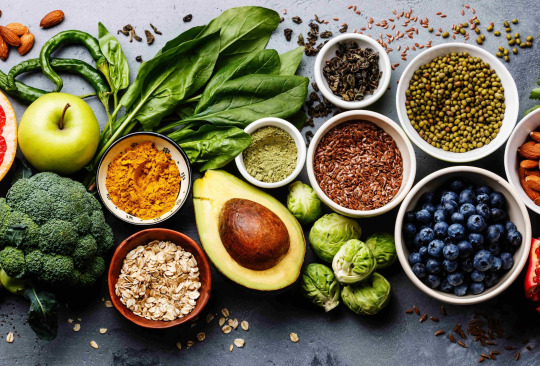Don't wanna be here? Send us removal request.
Text
Nutrition: The Key To A Healthier Life
Nutrition plays a fundamental role in maintaining health and preventing diseases. The foods and beverages we consume supply our bodies with essential nutrients that are vital for growth, repair, and overall well-being. Proper nutrition goes beyond simply eating; it is about understanding the types and amounts of food that nourish the body effectively. To know more information yidand.

The Building Blocks Of Nutrition
Macronutrients:
Carbohydrates: These are the body’s primary source of energy. Found in foods like bread, rice, fruits, and vegetables, carbohydrates are essential for fueling daily activities and maintaining brain function.
Proteins: Crucial for muscle repair, immune function, and enzyme production, proteins are found in meat, fish, eggs, beans, and nuts.
Fats: Often misunderstood, healthy fats provide long-term energy and support brain health. Avocados, nuts, seeds, and fatty fish like salmon are excellent sources of unsaturated fats.
Micronutrients:
Vitamins: These organic compounds, such as Vitamin C, Vitamin D, and Vitamin A, are essential for various bodily functions, including immunity and skin health.
Minerals: Elements like calcium, potassium, and iron contribute to strong bones, muscle function, and oxygen transport in the blood.
Water: Often overlooked, water is indispensable for hydration, temperature regulation, and aiding digestion. The human body is approximately 60% water, emphasizing its importance in our daily diet.
Benefits Of Balanced Nutrition
A well-balanced diet offers numerous health benefits. Here are some of the key advantages:
Boosted Immunity: Nutrient-rich foods strengthen the immune system, making it more efficient in combating illnesses.
Improved Energy Levels: Proper nutrition ensures steady energy throughout the day, reducing fatigue.
Enhanced Mental Health: Certain nutrients, like omega-3 fatty acids, have been linked to improved mood and reduced symptoms of depression.
Weight Management: Balanced diets prevent overeating and promote healthy weight maintenance.
Disease Prevention: Proper nutrition can lower the risk of chronic diseases such as diabetes, heart disease, and certain cancers.
Nutrition Across Different Life Stages
Nutritional needs change throughout life. Understanding these variations helps cater to specific requirements:
Infants and Children: Rapid growth requires nutrient-dense foods, including calcium and Vitamin D for bone development.
Teenagers: This stage demands increased protein and iron intake to support growth spurts and hormonal changes.
Adults: Maintaining a balanced intake of macronutrients and monitoring portion sizes are crucial for long-term health.
Elderly: Aging reduces metabolic rate and nutrient absorption. Diets rich in fiber, Vitamin B12, and calcium are vital.
Common Nutritional Challenges
Despite its importance, achieving optimal nutrition can be challenging due to several factors:
Busy Lifestyles: Fast-paced lives often lead to reliance on processed foods, which are high in calories but low in nutrients.
Food Insecurity: Economic disparities can limit access to healthy foods.
Dietary Trends: Popular but restrictive diets can result in nutrient deficiencies.
Lack of Knowledge: Misconceptions about food and nutrition can hinder healthy choices.
Tips For Better Nutrition
Plan Meals: Preparing meals ahead of time helps avoid unhealthy last-minute decisions.
Incorporate Variety: Eating a diverse range of foods ensures a broader spectrum of nutrients.
Read Labels: Understanding food labels can help identify hidden sugars, unhealthy fats, and excessive sodium.
Control Portions: Being mindful of portion sizes prevents overeating.
Stay Hydrated: Drinking enough water daily supports overall bodily functions.

Conclusion
Nutrition is a cornerstone of health and well-being. By understanding the basics of macronutrients, micronutrients, and hydration, and by overcoming common challenges, individuals can adopt habits that lead to a healthier, happier life. Investing in nutrition is an investment in a brighter, disease-free future.
1 note
·
View note